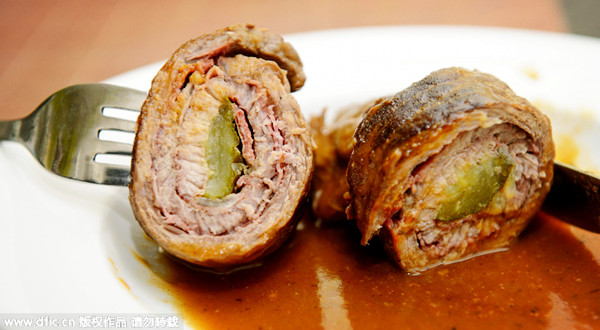China's meat producers react to WHO cancer warning
 |
|
Bacon, sausage and processed meats, are "carcinogenic to humans", said a report of the World Health Organisation (WHO). [Photo/IC] |
China's meat processors are angry at a report from a WHO research institute which said bacon, sausages and other processed meats are carcinogenic.
Media said the report was made by the International Agency for Research on Cancer (IARC) of the World Health Organization (WHO).
Liu Jintao, vice marketing manager of Shuanghui, China's largest pork producer, said the IARC report was "deeply regrettable."
"The report, though claiming to be published for human health, is in fact inhumane," he said.
He said air, water, and meat are essential for humans and their side effects should not be exaggerated.
"Meat processing technology is part of human civilization and it shall not been destroyed by being labeled 'carcinogenic'," he said.
According to the report, processed meats -- such as sausages, bacon, and other cured meats -- were a Group 1 carcinogen because of their links to bowel cancer. Red meats, such as beef and lamb, were placed in Group 2A as "probably carcinogenic to humans."
From January to June this year, Shuanghui sold 753,000 tonnes of processed meat and posted 20.3 billion yuan ($ 3.2 billion) in total revenue. In 2013, Shuanghui purchased its US counterpart Smithfield Foods, making it China's largest acquisition in the food industry.
The report, though opposed by meat traders, has caused the public concern.
"Although no orders have been called off, many customers called us to inquire about meat safety and sales after the IARC report was published Monday," said Ma Xiaozhong, head of Jinhua Ham Industry Association.
Jinhua City in east China's Zhejiang Province, dubbed the hometown of Chinese ham, has a ham history of more than 2,000 years.
Ma said that Chinese have been more and more aware of their diet in recent years, with some choosing to avoid pickled food.
He said in traditional ham making, only salt was added to meat. However, to enhance the quality, in modern meat processing, nitrite is also added for corrosion prevention.
Ma believed that the IARC's warning should just be taken as a tip to increase nutrition awareness.
Zhong Kai, a renowned Chinese food safety expert, said on Tuesday that the per-capita Chinese township population's daily meat consumption averaged 50 to 100 grams, compared with 200 grams in the US.
However, meat demand in China has the potential to increase over the next decade.
The increase in meat consumption in China over the years has been put down to the rising affluent class, and Chinese meat processors have responded by beefing up production.
On Monday, Zhengzhou, capital of Henan, became China's first inland port for meat imports after it received the first air shipment of frozen beef from Australia. Firms in Henan, the country's largest meat processing base, foresee that air transportation will help increase meat imports.
At a Daoxiangcun store in Beijing, buyers shrugged off cancer worries. A woman who gave her name as Li was buying sausages. "Eating one sausage a day is no problem. The reports are over-exaggerated and alarmist," she said.
Related:
Consumption of red or processed meat causes cancer
10 cancer-causing foods you probably eat every day






















